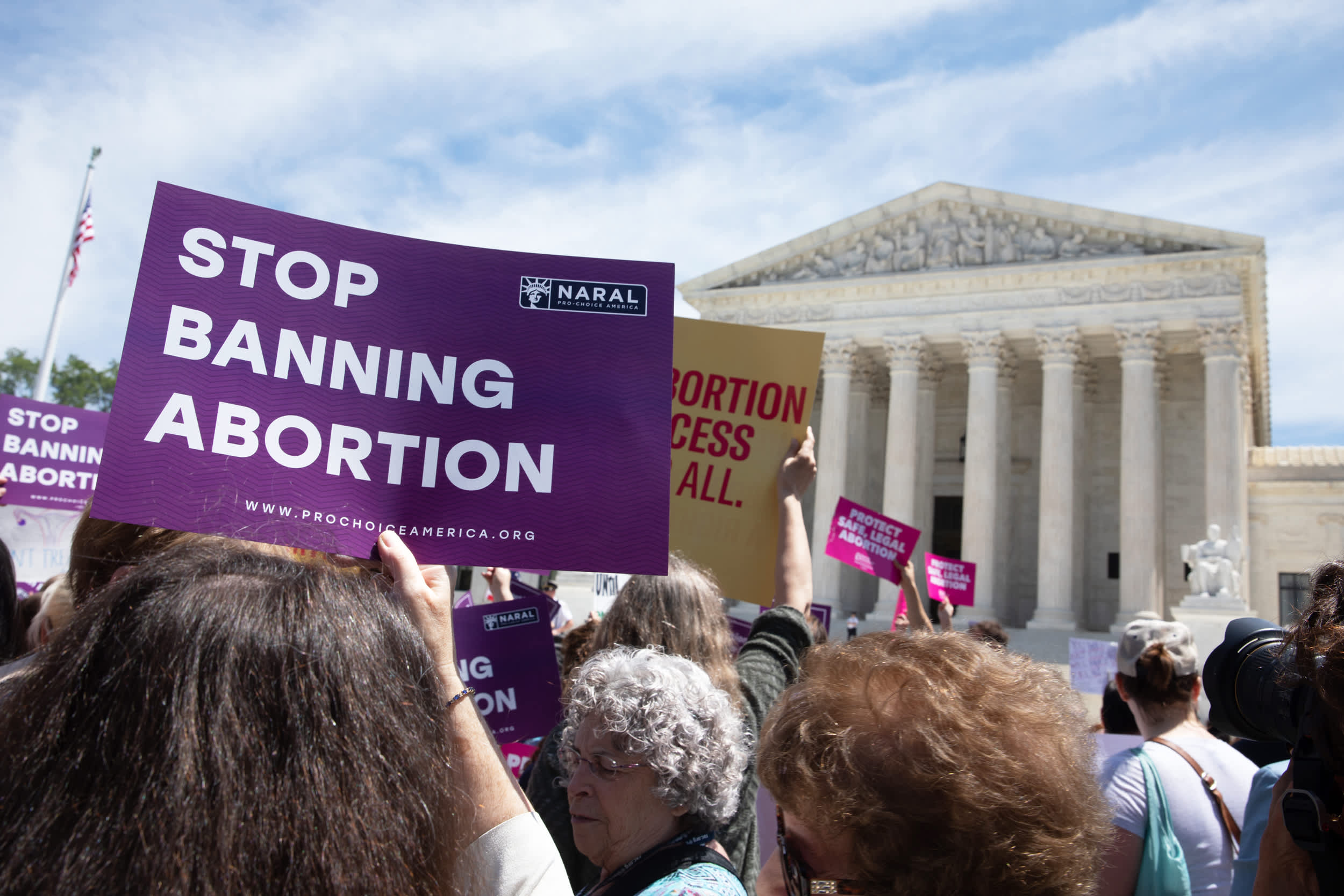Supreme Court allows Indiana abortion law governing disposal of fetal remains, but won't revive... - 3 minutes read

Abortionrights activist gathered outside the U.S. Supreme Court to protest against the recent abortion laws passed across the country in recent weeks. Tuesday, May 21, 2019. Washington, D.C.
Aurora Samerio | NurPhoto | Getty Images
The Supreme Court on Tuesday permitted an Indiana abortion law governing the disposal of fetal remains. But it declined to revive the state's ban on so-called discriminatory abortions based on the fetus's expected race or disability status.
Both laws were signed by Vice President Mike Pence when he was governor of the state. The court's action represents an incremental move on an explosive social issue that President Donald Trump has signaled he will make an election year talking point.
The announcement comes as conservative states across the country are passing laws in the hopes of prompting the top court to review its abortion precedents included the landmark 1973 decision in Roe v. Wade. But the court did not appear to be in a hurry to review those precedents on Tuesday and avoided some of the most contentious legal areas related to reproductive rights.
The court noted that its decision to overturn a lower court's ruling and permit the fetal remains law, which among other provisions bars the incineration of fetal remains alongside surgical byproducts, was not based on the "undue burden" test that has formed the crux of many challenges to restrictive abortion laws.
The Supreme Court has said that state abortion regulations are permissible as long as they do not unduly burden a woman's constitutional right to terminate her pregnancy.
With regard to the discriminatory abortion ban, the justices wrote that they did not take a position on the constitutionality of the regulation. The 7th U.S. Circuit Court of Appeals struck down the law.
The top court wrote in the unsigned order letting the appeals court ruling stand that its decision was based on its "ordinary practice" of waiting to take a case until more than one appeals court decides on a legal question. Only the 7th circuit has decided a case involving such a law, the court said.
The announcement was made in an order released on the court's website. Justices Ruth Bader Ginsburg and Sonia Sotomayor would have let the lower court ruling that blocked the fetal remains law stand.
In a statement, the anti-abortion group Americans United for Life wrote that it was "delighted" with the court's action on the Indiana fetal remains law.
"Without laws like Indiana's fetal remains law, medical providers are free to dispose of human fetal remains by incineration with medical waste, by dumping in landfills, and even by burning the remains to generate energy," the group wrote.
"Indiana's law recognizes the simple biological fact that human fetuses are human beings and, as such, should be treated with humanity and dignity whether in life or in death," the statement said.
Planned Parenthood, the reproductive rights group that challenged both Indiana laws, did not immediately respond to a request for comment.
The court could address more abortion cases in the coming months.
One case the court is likely to hear involves a Louisiana abortion law requiring abortion doctors to have admitting privileges at a hospital within 30 miles of their clinic. The law is nearly identical to a Texas measure the court struck down in 2016.
In February, the court temporarily blocked the law. If the court takes up the dispute again in its term beginning in October, a decision is likely to come around June of 2020, months before voters go to the polls in the presidential election.